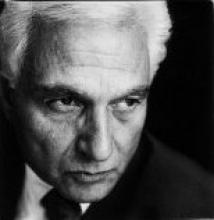
Jacques Derrida, the influential literary theorist, did not generally address music in his work, let alone jazz. Nevertheless, connections have been made between his ideas about the fundamental ambiguity of texts, of the complexity and instability of systems, and his explicitly radical political project, on one hand; and a form of music that seeks dynamism, surprise, and fundamental change on the other. The works posted here explore Derrida's views with respect to improvisation: one article from an analytic standpoint, and two others stemming from Derrida's emcounter in France with another theorist with strong, explicit views on improvisation, Ornette Coleman.
